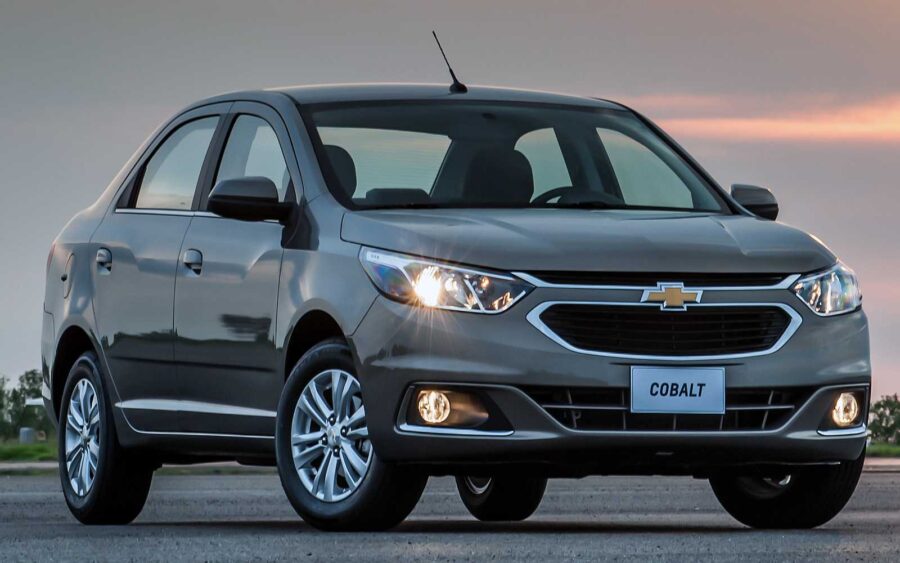Welcome to this informative article on the Chevy Cobalt, a compact car that has left an indelible mark on the automotive industry. Since its debut in 2004, the Cobalt has been a popular choice for drivers seeking a reliable and affordable vehicle. With its sleek design, impressive performance, and advanced features, the Cobalt has captured the hearts of many car enthusiasts.
Now, let’s delve into a crucial aspect of maintaining your Chevy Cobalt – the wheel nut size and torque specifications. While it may seem like a mundane topic, understanding the correct wheel nut size and torque is essential for ensuring the safety and longevity of your vehicle.
Why Wheel Nut Torque Matters
- Preventing Wheel Loosening: Properly torqued wheel nuts play a vital role in keeping your wheels securely attached to the vehicle. Insufficient torque can lead to wheel loosening, causing potential accidents or damage to your car.
- Ensuring Wheel Alignment: Incorrect wheel nut torque can result in uneven pressure distribution on the wheel, leading to misalignment. This can cause uneven tire wear, reduced handling performance, and compromised vehicle stability.
- Promoting Longevity of Wheel Studs: Over-tightening or under-tightening the wheel nuts can exert excessive stress on the wheel studs, leading to their premature wear or failure. Proper torque helps maintain the integrity of the wheel studs, ensuring their longevity.
- Optimizing Brake Performance: Adequate wheel nut torque is crucial for optimal brake performance. Improper torque can affect the brake system’s functionality, leading to reduced stopping power and increased braking distances.
Now that we understand the significance of wheel nut torque, let’s explore the specific lug nut size and torque specifications for the Chevy Cobalt. By adhering to these guidelines, you can ensure the safety, performance, and longevity of your beloved Cobalt.
Lug Nut Sizes for Different Trims and Generations
When it comes to the Chevy Cobalt, it’s important to know the correct lug nut size for your specific trim and generation. The lug nut size refers to the diameter and thread pitch of the nuts that secure the wheels to the vehicle. Here, we provide a comprehensive guide to the lug nut sizes for different Cobalt trims and generations.
Lug Nut Sizes for Different Trims/Engines
Below are the lug nut sizes for various trims and engines of the Chevy Cobalt:
| Trim/Engine | Lug Nut Size |
|---|---|
| LS, LT, SS (2.0L Engine) | 12mm x 1.5 |
| SS (2.4L Engine) | 12mm x 1.5 |
| SS Turbocharged | 12mm x 1.5 |
| SS Supercharged | 12mm x 1.5 |
Note: It’s crucial to ensure that you use the correct lug nut size for your specific trim and engine to guarantee a proper fit and secure wheel attachment.
Lug Nut Torque Specifications for Different Generations
Along with knowing the lug nut size, understanding the recommended torque specifications is equally important. Proper lug nut torque ensures that the wheels are securely fastened without causing damage to the vehicle. Here are the lug nut torque specifications for different generations of the Chevy Cobalt:
| Generation | Torque Specifications (ft/lbs) | Torque Specifications (Nm) |
|---|---|---|
| 2005-2010 | 100 | 135 |
| 2011-2016 | 100 | 135 |
Note: It’s crucial to use a torque wrench to ensure accurate torque application. Over-tightening or under-tightening the lug nuts can lead to wheel and brake system issues.
By referring to the appropriate lug nut size and torque specifications for your Chevy Cobalt, you can maintain the safety, performance, and longevity of your vehicle’s wheels. Remember to always consult your owner’s manual or a trusted mechanic for precise information specific to your Cobalt’s trim, engine, and generation.

Wheel Nut Torque Chart for Different Trim Levels and Years
Proper wheel nut torque is crucial for maintaining the safety and performance of your Chevy Cobalt. Here is a comprehensive wheel nut torque chart for various trim levels and years:
Front Wheel Torque Specifications
| Trim/Year | Torque Specifications (ft/lbs) | Torque Specifications (Nm) |
|---|---|---|
| LS/LT (2005-2010) | 100 | 135 |
| SS (2005-2010) | 100 | 135 |
| SS Turbocharged (2008-2010) | 100 | 135 |
| SS Supercharged (2005-2007) | 100 | 135 |
| LS/LT (2011-2016) | 100 | 135 |
| SS (2011-2016) | 100 | 135 |
Rear Wheel Torque Specifications
| Trim/Year | Torque Specifications (ft/lbs) | Torque Specifications (Nm) |
|---|---|---|
| LS/LT (2005-2010) | 100 | 135 |
| SS (2005-2010) | 100 | 135 |
| SS Turbocharged (2008-2010) | 100 | 135 |
| SS Supercharged (2005-2007) | 100 | 135 |
| LS/LT (2011-2016) | 100 | 135 |
| SS (2011-2016) | 100 | 135 |
Actionable Recommendations for Wheel Nut Torque
1. Use a Torque Wrench:
Invest in a reliable torque wrench to ensure accurate and consistent torque application. This will help prevent under-tightening or over-tightening of the wheel nuts.
2. Follow Manufacturer’s Specifications:
Always refer to the owner’s manual or consult a trusted mechanic to determine the specific lug nut size and torque specifications recommended by the manufacturer for your Chevy Cobalt.
3. Regularly Check Lug Nut Tightness:
Make it a habit to periodically check the tightness of your Cobalt’s lug nuts. This is especially important after tire rotations, wheel replacements, or any maintenance involving the wheels.
4. Avoid Using Impact Tools:
Avoid using impact tools, such as impact wrenches or air guns, to tighten lug nuts. These tools can easily over-torque the nuts, leading to potential damage or failure of the wheel studs.
5. Seek Professional Assistance:
If you are unsure about the correct lug nut size or torque specifications, or if you lack the necessary tools and expertise, it’s always best to seek professional assistance from a qualified mechanic.
By following these recommendations, you can ensure the proper torque application of your Chevy Cobalt’s wheel nuts, promoting safety, longevity, and optimal performance for your vehicle.
